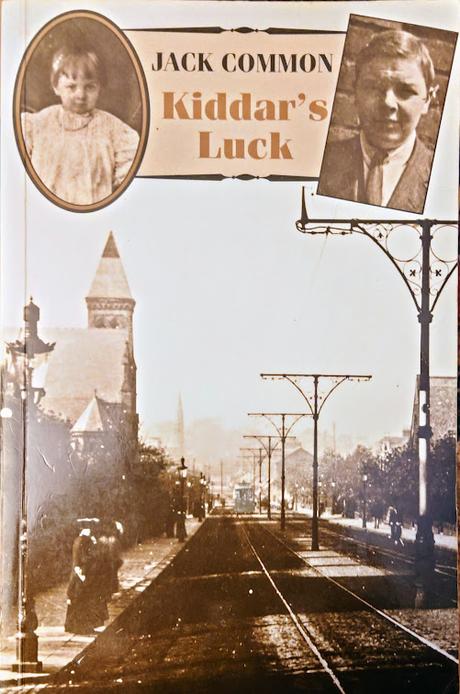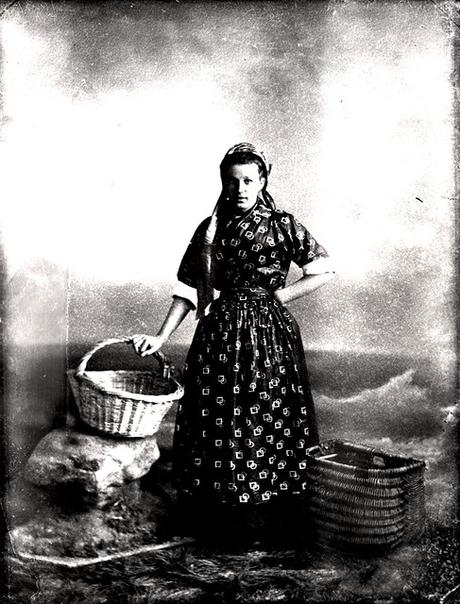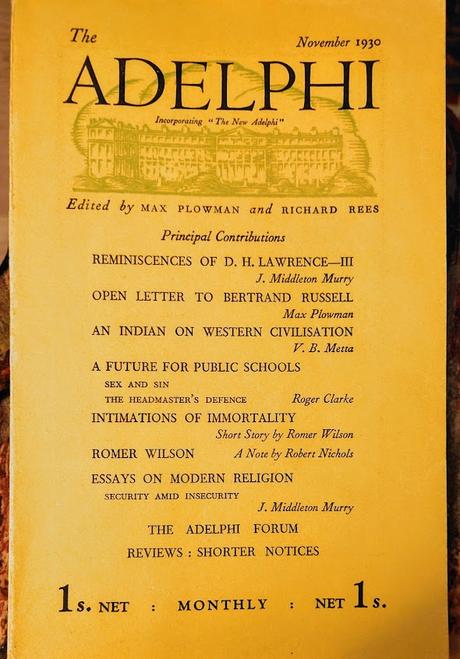By Val Hewson
This month we read working class fiction and I discovered a book which makes me think about where I come from.
… Newcastle being a fine town to roam in, especially after dark. Its natural features are excellent, that’s why, since it is all hills, vales, bridges and one view succeeds another every hundred paces in a manner which fascinates anyone with an eye for composition in a landscape. True, for two centuries or more the main endeavour of the city fathers has been to destroy this balance, and the muck of unrefined capitalism of all periods is pretty thick on all quarters. Still there is a natural obduracy in the configuration of the place which resists all the erosions and excrescences which otherwise must have made a Hull or a Birmingham of it. … From St. Peters you looked down a hillside of staggered roofs and cobbled streets to where the river slid like new-boiled pitch under ships and quays until it took the glitter of the lights on several bridges, high and low, or writhed with reflective flame as a train passed over. That was the basic scene, but as you descended, its angles and emphasis shifted. Bridges moved their relation to one another; quays and the shipping flattened out, losing the river behind them; and the center of the town began to rise up.
Kiddar’s Luck, Blood-Axe Books, Newcastle, 1990, pp. 129-30.
This is the city of my youth, and I love it dearly. You light up, a friend said, as the train crosses the Tyne and pulls into the Central (one of the best railway stations, obviously). ‘Canny Newcassel’, Jack Common calls it (p. 130).
 The Bloodaxe Books edition of Kiddar’s Luck, showing Heaton Road, Newcastle, and Jack Common as a child and young man.
The Bloodaxe Books edition of Kiddar’s Luck, showing Heaton Road, Newcastle, and Jack Common as a child and young man.
Kiddar’s Luck is the fictionalised memoir of Jack Common (1903-1968). Lightly fictionalised, it seems. For Willie Kiddar, read Jack Common. The title is ironic. The Kiddars know only bad luck, and as ‘kidder’ is used locally to mean someone young (‘Howay, kidder!’), it perhaps suggests the difficulties faced by many Geordie children of the early 20th century. Willie (or rather Jack) is the child of ill-suited, hard-pressed parents, brought up in poverty, both of kind and aspiration, in the Avenues, mean terraces in Heaton, near the railway depot where his father works. Heaton is real, the Avenues are real, though now looking better than they did in 1903 when Willie/Jack was born, and just beyond the Avenues his father’s railway still runs north to Scotland.
There is no plot to speak of. This is an account of a child’s life from the meeting of his parents to his needing to find a job at the age of 14, from the end of the Victorian age to World War One. It seems simple and straightforward – events and experiences, all within a few hundred yards. Playing with the children of his street and fighting with the children of the next street; the apparent futility of school; his father watching the clock because he mustn’t be late for his shift; an accident leaving his mother in such pain that she takes to drink; Jack getting religion and losing it; the birth of three sisters and the death of one. In fact, of course, this all builds up. It takes its toll on the reader. Little happens to lighten the mood. Is it manipulative? Well, yes. Isn’t all fiction? It’s worth saying, however, that there is no self-pity. What there is, is an ironic humor throughout, as when war is declared and Jack’s father might enlist:
All the same, the early hopes both my mother and I entertained of having a hero in the house quickly faded. It wasn’t long before we were glad of his decision, seeing so many families desolate and limping. Of course, nobody who knew him questioned his courage: he was ‘arkward’, that’s all. Where he wasn’t known, out on the main streets, pretty girls presented him with white feathers, and often – after he’d kidded them a bit and they’d had a good look at him – with their addresses. So he didn’t do too badly out of that. A good political conscience is an excellent foundation for adultery.
Kiddar’s Luck, p. 98.
And underneath the humor there is anger at a system which condemns so many people to live miserable lives with so few escape routes:
A few days of this and I had acquired the one faculty with which every school infallibly endows its pupils, that of being bored. It is very important, of course, that every child should in the course of time be fitted up with this negative capability. If they didn’t have it, they’d never put up with the jobs they are going to get, most of them, on leaving school. Boredom, or the ability to endure it, is the hub on which the whole universe of work turns. … Most of us, however, are unable to survive being educated. We learn reading and boredom, writing and boredom, arithmetic and boredom, and so on according to curriculum, till in the end it is quite certain you can put us in the most boring job there is and we’ll endure it.
Kiddar’s Luck, pp. 32-3.
Inevitably, in the story of a young child, his parents dominate, portrayed without sentimentality, with understanding:
The appearance of the head of the household at the most awkward and unexpected times later became a recognised hazard in Kiddar life, but that time was not yet. In fact, during these earliest years my father played quite a pleasant role in my young life. I was impressed by his strange masculine power. He was big, of course; he was noisy; he was much stronger than any other person around. But it wasn’t just that. He came out of another world and brought something of its atmosphere with him. My mother’s opinions and doubts and worries, he simply overrode, as he did my own waywardness. She found herself under direct command to do something, followed by a highly uncomplimentary remark if she didn’t do it quick; me, I was swung up to an area of broad shoulder and hard bowler-brim where I had a lovely view of the street in the intervals I was not blinking against the smoke and sparks from a clay pipe.
Kiddar’s Luck, p. 23.
The accretion of contextual detail adds to the intensity of the narrative. The light in Willie’s mother’s ‘sacred’ front room is ‘greenish, brownish, seaweed-coloured … with motes in it and everywhere picking up reflections from many small mirrors in sideboard and overmantel and in the glass of many pictures’ (p. 12). On washing day, every woman hangs out her washing in the back lane and rushes out to defend it, ‘high over horse’s head with a prop’ (p. 18), against carts driven along the lane. The caller goes round the houses to get men out in time for work: ‘Three-twenty-five. Special to York. D’ye hear?’ (p. 3). ‘Like caryatids walking under the great baskets they carried on their heads’, Cullercoats fishwives sell ‘fresh fish, hinny, straight from the sea’ (p. 18). The children collect ‘boody’, or ‘broken glass, china and pebbles … treasure sparkling in the sun’ (p. 17). When it’s dark, they play a game called ‘Jack, show a leet’ [light] (p. 59) with lanterns.
 Cullercoats fishwife, Kate Donkin, by an unknown photographer (1897) (public domain).
Cullercoats fishwife, Kate Donkin, by an unknown photographer (1897) (public domain).
Much of this sounds familiar from stories I heard as a child (I loved stories), when people as old as I am now looked back to their childhood. I had relatives who lived near Heaton. It comes back to me that my grandmother had two figurines of Cullercoats fishwives and I have remembered hearing ‘Jackie, shine a light’ and ‘boody’. On visits to Newcastle now, I occasionally walk past the bottom of the Avenues, the Chillingham pub where Willie’s parents drank and Chillingham Road School where he was a pupil.
In Kiddar’s Luck, we leave Willie contemplating his prospects of getting a job.
By now all who had finished school that summer term along with me had jobs. I alone was left still holidaying … Vast ambitions moved upon my imagination as I read or walked; in some moods I felt that the world had lifted its horizons, anything was now possible to me. … Later, staring at the vacant in my window-pane, I saw no glories to come, only the plain truth that I was a Kiddar …
Kiddar’s Luck, p. 141.
In a final irony, Jack escaped his Kiddar heritage. At the age of 25, unemployed, he left his Newcassel for better prospects in the south. He was invited to join The Adelphi, the literary journal founded by John Middleton Murry, the writer and widower of Katherine Mansfield. Jack had come to Murry’s attention through essays he had written, and in time he became assistant editor and, briefly, acting editor. Through his work, he met major literary figures like E M Forster, Dylan Thomas and George Orwell, who became a friend. Jack continued writing and editing political and sociological essays, including The Freedom of the Streets and Seven Shifts (both Secker and Warburg, 1938), and also film scripts. During World War II he took part in BBC radio debates. Kiddar’s Luck came in 1951, the first volume of an autobiographical trilogy. It was followed in 1954 by The Ampersand, but the final volume never appeared after the publishers, Turnstile Press, went out of business. Jack died in 1968, in Newport Pagnell, where he had long lived.

In reality, of course, Jack never escaped his Kiddar heritage. Yes, he left the Avenues far behind, but his early life marked his whole life. Despite the elite literary circles in which he often moved, the poverty he had known made him who he was, and was always at the heart of his essays and novels. It is a pity that he is not better known.
I have been trying to guess who ‘Jack Common’ can be. The name sounds like a made-up one. The style is not that of a beginner; it is that of a man skilled with the pen. But I cannot think of anyone among established authors who could write so vigorous, so devastating, so widely human and so stimulating a book as The Freedom of the Streets. At one moment I fancied it might be Dick Crossman. If you can imagine a college don with as close a knowledge of the slums as of the classics, intensely human sympathies. and a social revolutionary outlook, he might lay about him thus energetically, yet always with good humor … Jack Un-common he should be called, for books like this are rare.
Review by ‘H F’ of The Freedom of the Streets, by Jack Common, Reynolds’s Newspaper – Sunday 05 June 1938, p.13.
You can read more about Jack Common here.
